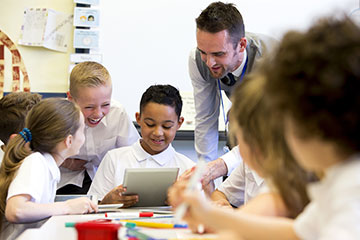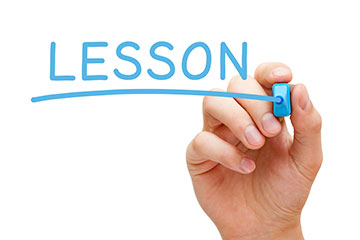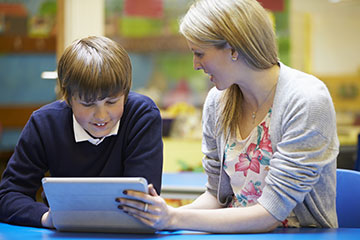TEACHING GUIDELINES

Baseline Measure:
As part of an evidence-based framework, it is necessary for you to complete a ‘Baseline Measure’ before you can access your Lessons in a Learning Module. This helps you establish a record of current abilities before you begin. To obtain an accurate picture, we recommend that you consult with parents/teachers where appropriate.
Please rate the behaviours that are present and being used independently: ‘On occasion’, ‘Some of the time’ or ‘Most of the time’. Once the Measure is saved, it is a permanent record and cannot be re-administered. It may be useful to supplement your baseline data with anecdotal notes of changes in behaviour along the way that will provide a valuable record of qualitative improvements in learning.

Progress Measure:
Upon completion of every Learning Module, evaluate the progress made by completing a ‘Progress Measure’. This measure will be automatically compared against the ‘Baseline Measure’ to reflect any improvements. It is necessary for you to complete the Measure before the next Module can be activated. From our experience, you may find that progress has been achieved in knowledge of the concepts but practically, skills may only be emerging in real life situations. Remember that mastery of social concepts and skills takes time to consolidate. As such, you will be alerted to update your Progress Measure after the completion of another two Learning Modules.

Module Introductions and Lesson Outlines:
Information on content is provided at the commencement of every Learning Module. The Module Introduction summarises the main concepts and highlights the key objectives that will be taught.
The Lesson Outlines provide you with an overview of the Lessons in each Module that may assist you in your planning. The content of each Lesson may translate to more than one session and can be conducted over one or more weeks, depending on your children or young people.

Scheduling Your Lessons:
We recommend that you schedule the Lessons on a weekly basis within the school terms. Based on our clinical experience, it is beneficial to maintain the momentum in the children’s or young people’s learning so that the skills and concepts taught can be consolidated and connected to a wider context beyond a single Module. Over the holiday breaks, we noticed that time away from lessons often gave the children and young people time to consolidate and apply the skills they had learnt.

Preparing For Your Lesson:
To facilitate your preparation, we recommend that you open a Lesson one or two weeks ahead of your actual teaching. The Lessons are released sequentially within a framework of paced learning that is linked to the outcome Measures. This helps us validate a systematic approach to social learning.
To maximise each Lesson for your children or young people, we advise that you familiarise yourself
with the teaching posters, videos, activities and role plays that may be part of a lesson. Please check ahead for the role plays as you may need to arrange for other adults or peers to be involved.

Using The Lessons As A Resource:
Use the Lessons as a guide and modify the content to address the specific needs and interests of the children or young people you are working with. You have the option of varying your pace of delivery by collapsing or expanding activities; or teaching a Lesson across more than one session.

Asking Questions:
It is important to check and review how much your children or young people have understood and remembered of the social information that they’ve been taught. The questions in the Lessons are designed to guide your children’s or young people’s thinking and learning. They are placed in every Lesson either to reinforce concepts taught or to prepare them for new learning. From our years of clinical experience, we found that the regular review of past material facilitated permanence of learning of the concepts and skills taught.

Using The Teaching Posters:
The teaching posters are designed to be viewed on the screen. As these posters teach the key concepts, it is important to read through the posters so that you are familiar with the key thoughts that should be highlighted and explained. If you are working with another teacher or adult, you may want to read the comic strip dialogues together with each of you taking a specific role. Individual children can also be assigned to read the different dialogue parts to make it more interactive.

Using The Rating Charts:
We advise that you challenge your children or young people by encouraging them to rate themselves first before you provide your feedback and adjust their rating. This will give you a clearer picture of how self-aware they are in any given area. If they ask you to help with the rating, explain that it is important for them to try self-rating first so they learn to ‘know themselves better’. Improved self-awareness equips your children to be better able to monitor their own social interactions as they become more aware of the relationship between themselves and others.
From our clinical experience of working with groups, it worked the best to allow each child or young person to rate themselves by turn on the same skill before moving on as a group to rate the next skill. This kept the turns moving and all the participants actively engaged.

Carrying Out Games And Activities:
A variety of games and activities have been included in the Lessons for you to practise certain skills or concepts. We encourage you to modify or substitute activities that are more appropriate to the needs or interests of the children or young people you are working with while maintaining the main objective to be taught.

Giving Feedback
Be specific in affirming your children’s ideas as well as participation in activities. Provide constructive feedback that contains social information; specifically how your children or young people look and/or how other people may think or feel. You can also talk about the consequences of actions and highlight what they could do next time.

Conducting Role Plays:
Role play practice is an essential part of carry-over and generalisation because it provides your children or young people with the opportunity to practise what they will need to do in real life situations. For best learning, it is helpful to familiarise yourself with any role play scripts and if possible rehearse beforehand. When other adults and peers are involved, we recommend that you familiarise them with the goals and scripts for any role plays before the actual lesson.
If you are able to involve another adult, the ‘lead’ teacher can engage directly with the child/young person while the second adult stands behind them and acts as a ‘facilitator’ to support their responding. Wait to see how your child/young person responds; and avoid over-prompting or accommmodating them. If a situation is misread or misapplied, use their naïve responses as a teaching opportunity. This takes the learning beyond the ‘target objectives’ and allows the child/young person to understand the impact of their own behaviours in a supported situation. Direct the children/young people who are observing to pay attention to what their peers say and do in role play practice; as they can gain powerful insights from watching other people.

Completing Interactive Challenges:
These fun challenges can be completed as a teaching activity or independently. For Teacher Accounts, the challenges can be presented as a class activity; and each student has the facility to repeat it again on their personal Dashboard at home.

Watching Video Material:
We advise that you watch the video material included in a Lesson first before viewing it with your children or young people; so that you can evaluate whether it is suitable for them. The video clips are simply a resource and can therefore be replaced with alternative clips, targeting the same learning goals, which may better suit your children or young people.
Viewing the videos beforehand also allows you to familiarise yourself with the storyline and key
teaching segments. In some cases, you may need to know the exact places to stop for specific questions and discussions.

Partnering with Parents:
If you are working at school or in the clinic, we recommend that you encourage parent participation in the carryover and generalisation of skills. By regularly sending teaching posters and Interactive challenges to your student’s personal Dashboards, you can keep parents up to date with the key concepts for a particular Lesson and advise them as to how that concept can be applied and reinforced. This empowers parents to engage their child or young person in further social learning across different real-life situations at home and outside. With your support, parents can facilitate skills transfer that contributes to permanence of skills.

Building Bridges:
In our experience, parents reported a greater sense of empowerment in managing issues when they are involved in their child’s or young person’s social learning. The parents we worked with made a regular practice of reviewing key concepts with their child or young person who reportedly responded well to reminders in applying what they had learnt during the Bridges Lessons. Some of the parents stated that their children and young people liked having access to their own social materials and referred back to their Bridges’ posters independently as they continued to apply concepts they had learnt.

- Registered in England and Wales No.8556226
- Privacy Policy
- Faq

